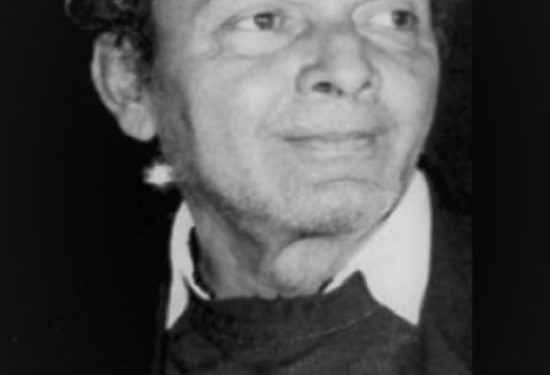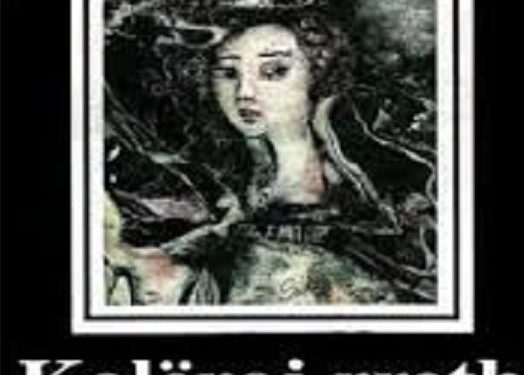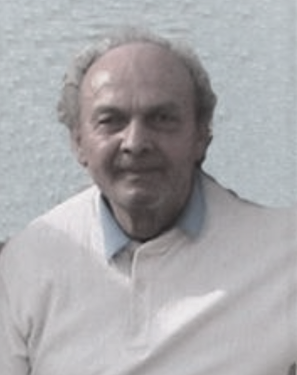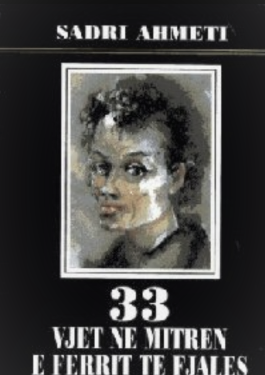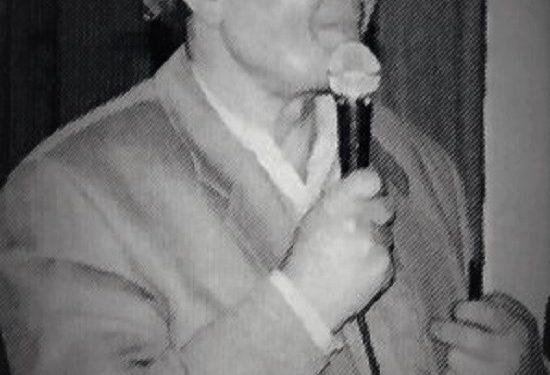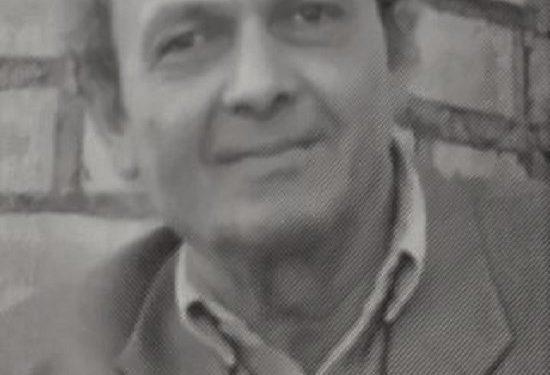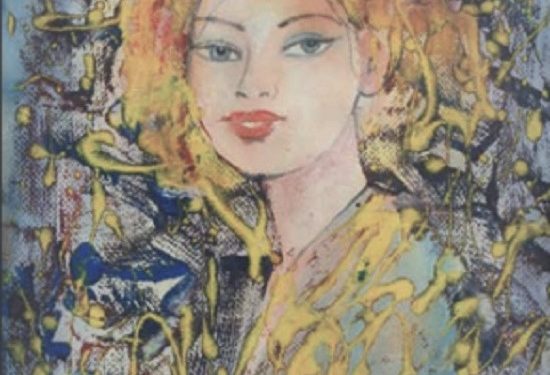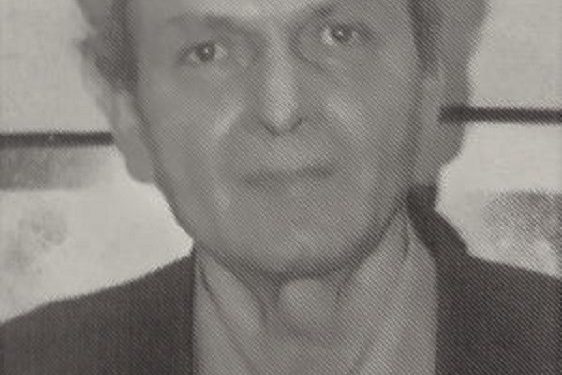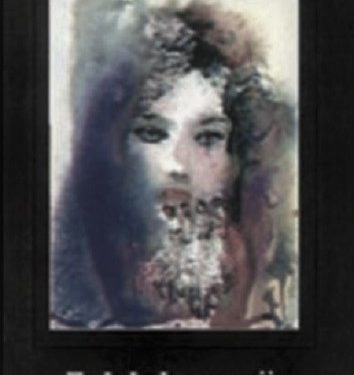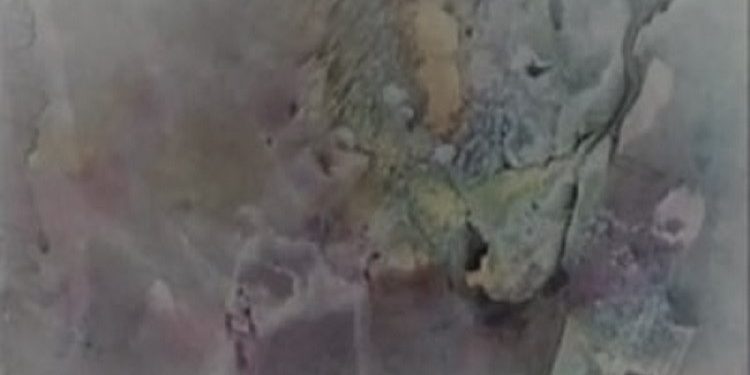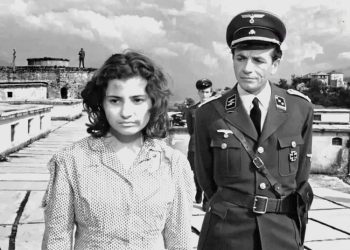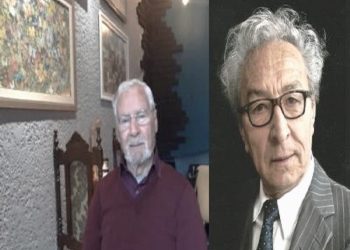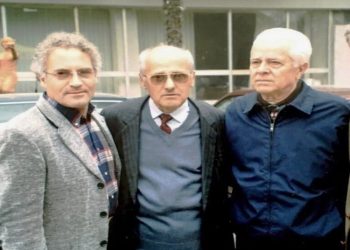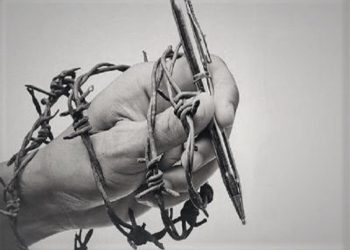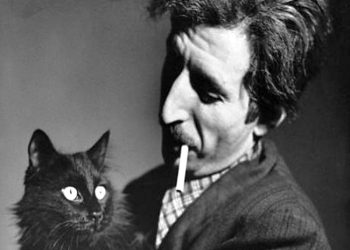Dashnor Kaloçi
Memorie.al publishes the unknown story of renowned poet and painter Sadri Ahmeti, originally from the Albanian region of Vuthaj under Montenegro, a former pupil of Dusan Mugosha in Peja’s high school, who in 1957, along with the other three brothers, Rama, Mustafa, and Selimi, escaped from Yugoslavia and came to Albania, where after spending some time in the Tirana prison, accusing them of being “sneaky UDB agents”, they sent them to Lakatundi camp. of Vlora, where about 700 people were held in solitary confinement, most of them Kosovar immigrants.
Sadri’s schooling in Kamza Farm where she graduated as an agronomist and settled into a job in the Berat district where she was interned, as she had no right to move without written permission from the Department of Internal Affairs, and the return of her passion of his childhood, poetry, having managed to publish the first poetry cycles in some newspapers and literary magazines of the time, such as “November”, “Drita” etc.
His transfer to the Kruja Artistic Company as a painter and the right to pursue the Higher Institute for the Arts in painting, wherein 1970, after numerous State Security pressures that required him to testify in writing against some of his friends and of Kosovo’s compatriots, Kapllan Resuli and Myrteza Bajraktari, he was arrested and served four years in the Spaç camp after being accused of “agitation and propaganda and a UDB agent”. Sadri’s release from prison was sent to hard labor at the Elbasan Cement Factory Quarry where, in 1982, he narrowly escaped arrest after sending a lengthy letter to Ramiz Alia.
For those two months I was a painting student at the Higher Institute of the Arts in Tirana, I was often called upon by the State Security to deposit in writing the many people I was associated with, who were said to be agitating and propaganda speaking out against Party and power. They conditioned me that if I did not file about 70 pages in writing, all those friends I had sat at desks would not allow me to continue school. When they came to get the “order” they had left me, I handed them 70 pages of blank paper. They were outraged by this, and in retaliation, they arrested me at the student’s dormitory. This is how he remembered his arrest, the renowned painter and poet Sadri Ahmeti, recounting all the vicissitudes of his life since October 1957 when he left his hometown, Vuthajn, Montenegro, to escape along with the other three brothers, to Albania and the hell he received in prisons and internment in the place where he had dreamed of paradise.
Ahmeti family from Montenegro
Sadriu was born on March 23, 1939, in the Albanian region of Vuthaj under Montenegro, where his family originated. Sadri was the third child of the six sons and two daughters of Ali Hima’s family, considered one of the most handsome and noblemen in the area. Sadriu took his first lessons in Guci and Peja and from a very young age, he displayed talent and talent for literature and painting, managing to publish his first poems in the Kosovo periodical press. In this regard, Sadriu recalled: “During my high school years when I was in the mixed gymnasium of Peja, in the literary district of the school where I also belonged, Dusan Mugosha, who was holding most posts, often came to check us out. party and state leadership in Kosovo’s leadership. He checked our poems, seeing that there we were calling for the freedom of Kosovo and expressing irredentist feelings, as he expressed it. I followed those literary circles for a long time with my friend Qerim Ujkani, who later became one of Kosovo’s best-known poets. ”
Escape with the brothers in Albania
When he was in his second year at the Peja Gymnasium, Sadriu began to understand not only the problems of school, family, and literature but also the political ones, such as the oppression and discriminatory methods used by the Belgrade regime and its leader. her, Josiph Broz Tito, to the Albanians living in their lands in Yugoslavia. These problems were often discussed in Ali Hima’s family, and on a summer day in 1957, Sadriu and his three brothers, Rama, Mustafa and Selimi, decided to flee Yugoslavia to Albania. Regarding this, Sadriu recalled: “Oftentimes, not only with my schoolmates but also in the family, with my brothers and sisters, we talked about Albania, for which we had great worship. We dreamed of looking at our homeland, or the motherland as we used to say. So on October 23, 1957, the four brothers left for the state border and passed through the cliffs between the Plava and Valbona area of Tropoja. After being apprehended, the Albanian border guards escorted us to the post office and took us to Tirana, where they put us in prison cells, interrogating us and pressuring us. They told us: we were undercover agents of the Yugoslav UDB, which had launched us on a special mission to Albania. We were kept in that prison for a month for us to admit that we were UDB agents. After a month, when they became convinced that in that adventure we had been driven by our desires and passions of age, love for the homeland and hatred for the Serbs, they took us four brothers and took us to the village of Lakatund, Vlora. It was a police-held internment camp, where some 700 people were held in isolation and most of them were Kosovar immigrants as well as us. There they appealed to us three times a day, and in those very difficult conditions, we stayed for a year, until against my will they were assigned to attend the two-year Agricultural School in Kamza, Tirana”.
Agronomist publishes his first poems
After graduating from the Agricultural School in Kamza, Sadri was assigned to work in Berat. Likewise, his three brothers were educated in agricultural schools and turned agronomists. In the district of Berat, Sadriu was in exile, as he had no right to move out of the city and for whatever reason he had to obtain permission from the Internal Branch. In those conditions he returns to his first childhood passion, writing poetry. Regarding this, Sadriu recalled: “On the outskirts of Berat, where I lived alone in a cartoon called ‘flat’, I began writing and finished the poem ‘The huts are cold’. That poem was initially liked and a part of it was published in the literary journal Drita. This poem was subsequently banned and the reprint was revoked because I was considered suspicious, and furthermore, because I did not have Albanian citizenship. After that, I wrote the next poem “Between Me and the Sun” which I sent to a national competition. This was not accepted at all, as it allowed only those with Albanian citizenship to participate, a “status” that I still did not enjoy. I was not at all discouraged by these deprivations and continued to write, managing to publish several poetry cycles in newspapers and literary magazines, not under my own name but under the pseudonym “ASSA”. In 1964, I was removed from Berat and taken to the farm near Kruja as an agronomist, wherein 1966, I was appointed as a painter at the Craft Company in Kruja. I worked there until 1970, when I was given the right to pursue the Higher Institute of Arts in Painting, ”Sadriu recalled at the time, as a result of a not too aggressive policy pursued by official Tirana against Tito’s Yugoslavia. and Kosovo, too, was given the right to pursue higher education.
Student of painting and arrest
Sadri’s dream of studying at the Higher Institute of the Arts in the field of painting was not meant to be a reality, for it would soon fade away, as other problems would begin. Concerning this, he recalled: “For the two months I was a painting student, I fell into the clutches of the State Security, often calling me to testify in writing about some people allegedly agitating and propagating. The insurance provided me with the condition that if I did not deposit 70 pages in writing, all my friends with whom I had sat at the tables would not be allowed to attend school. After this ultimatum, when they came to receive the “order” I was given, I gave you 70 pages of blank paper. They were outraged by this, and in retaliation, I was arrested in the dormitory of “Student”. I was detained for 300 days in the Tirana investigation and was charged with “agitation and propaganda, a UDB agent”. Shortly before I was arrested, the State Security had arrested two of my fellow Kosovar immigrants, Kaplan Resulin and Myrteza Bajraktari. The purpose of State Security was for all three of us to declare us as a UDB agent group. From the beginning of the investigation I was asked to file a written statement against Myrtezai, and I told you that I knew the man very well. They gave me a pencil and white papers, which I filled with praise for Myrtezai. The investigators, when they saw that I was writing, were happy at first, but when I handed them the papers in their hand, they went crazy. One of them said to me: ‘Take the mask, we don’t want to make MP Myrteza Bajraktari’! After that, my back had physical consequences for a long time. Also after that, I was asked to testify against Kaplan Resuli, whom I again defended and say that he escaped from the shooting”.
Trial: 4 years in prison
After 300 days in the investigator, in July 1970, Sadriu appeared before a military college in Tirana. The reason he was brought to trial by the Military Court was a State Security maneuver to present him as a dangerous person and a UDB agent. Related to this, Sadriu wrote: “During the court hearings I was asked to explain because I had said that ‘Enver Hoxha in collaboration with Tito had signed up for the murder of the five thousand Albanian nationalists who were executed in the Bar Massacre.’ The presiding judge told me that it was done by Kochi Xoxe and I should not mention any other name besides him. I told you that I had no knowledge of that, but since I was learning there, I fully agreed with the panel that it was the work of Kochi Xoxes. During the trial, I did not admit any of the charges against me and in the end, the Military Court of Tirana sentenced me to four years in prison. All four of these years I suffered at Spaç camp in Mirdita, working underground in a mine to extract copper and pyrite minerals. I was released from that prison in 1974 and was immediately sent to exile in Balëz, Elbasan, where I was assigned to work as a miner digging stones in the quarry of the raw material of the Cement Factory. ”
Writes to Ramiz Alia
After spending some time in the Balza quarry, Sadri was moved from there to various construction sites in various districts of the country, where he was constantly under the strict supervision of State Security. Regarding this, he recalled: “In those years I managed to meet and form a friendship with Mysine Kokolari, who was introduced to me by two of my friends, Luan Maluka and Mehmet Isa, who later ended up in Spaç prison. In those years, even though I knew I was not being published, I continued to write, and in 1982, I managed to publish a cycle of poetry in the November journal. This echoed a great deal and at that time many anonymous letters were made against me by some mediocre poets. This was of consequence to me as the State Security was getting my file ready to resubmit me. It was clear after starting a screening where I was working in the Balza quarry, after denouncing an engineer to whom I had said: ‘The Polite Bureau with the Technical Bureau, they don’t make much difference, as they separate just one letter. The Technical Bureau invents, and the Political Bureau invents. In those conditions, feeling that my arrest was a matter of days, I was compelled and wrote a 44-page long letter to Ramiz Alia asking that the rights of Kosovar migrants in Albania be respected. In that letter, I wrote, among other things, that we Kosovar immigrants were treated as guests in their home country, and mentioned them by name many of whom were in prisons and internment. Taking advantage of the case that Enver Hoxha, after convicting Kadri Hazbiu’s group, had called the Interior Ministry a nest of snakes, at the end of the letter I wrote: ‘The interior ministry buildings should be torn down and its bricks were thrown into the sea Adriatic, they still pose a danger. ‘ Ramiz Alia’s response came to me through the Executive Committee and said that I would be treated like all other citizens, with equal rights, which also closed the State Security file that was being prepared to arrest me”.
55 years old graduated in painting
Sadriu’s letter to Ramiz Alia only benefited from the removal of surveillance by State Security because he remained there as an employee at the Elbasan Cement Plant. Only after the overthrow of the communist regime in 1991 did Sadriu return to Tirana and pursue the Higher Institute of Arts, where he graduated in painting in 1993-’94. Since then he has continued to write and has managed to publish 10 books of poetry and prose. Sadriu also participated in several painting exhibitions, managing to open her own solo exhibitions in Albania, and four more abroad, such as Italy, Switzerland, Germany, and Kosovo. He conveyed his mastery of painting to his second son, Ilir, who graduated from the BUKURA Academy of Fine Arts, while his other son, Rubin, continued his studies and graduated with a degree in German Studies. With the humor that characterized him, without which it was difficult to visualize Sadri, he often said, “Thank goodness this time came to enjoy and laugh, that even we were forbidden at that time when you had so much to laugh at”. Memorie.al




